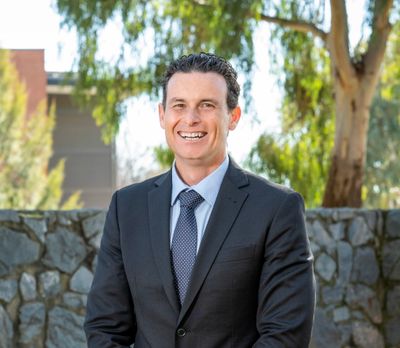Deliberate practice and human excellence
By Mr Christopher Bradbury, Principal

Karl Anders Ericsson wasn’t a sportsman or a musician, however his research had a profound influence in both disciplines. He was curious about the nature of excellence and his work provided a lifetime of study that made him the ‘expert on experts’. The key to his research was providing overwhelming evidence that ‘experts are made not born’. He argued that the way to develop expertise was through the intentional process of deliberate practice.
There are several critical components to the effective execution of deliberate practice and one of them is that not all practice is equal or will yield expertise. Anders Ericsson argued that bad practice can be counterproductive, however deliberate practice refers to the systematic method of effortful, highly focused, goal-oriented practice which aims to improve performance. It is the ‘intentional engagement in skills-based learning’ that proves most effective, and a prime example was captured in the sport documentary series The Last Dance conveying how Michael Jordan’s greatness on the basketball court was hard won in all manners of deliberate practice. Hours on the court practicing shooting and engaging in oppose sessions to best perform under pressure proved to be the cornerstone of his success.
Deliberate practice also serves to build resilience in the mastery of skill. As a consequence of trying to do things you cannot yet do, deliberate practice will involve regular failure and so will require bouncing back to persevere towards expertise. The process develops ‘effort’ and a hard-working attitude in terms of pursuing excellence which is the residue of a quality education in any field.
Deliberate practice involves sustained effort, because you are outside your comfort zone which provides the necessary challenge and rigour to grow.
Finally, Anders Ericsson’s work highlighted that the success of deliberate practice was largely dependent on the influence of the teacher or coach. To practice harder and smarter, the environment and instruction is largely dependent on the quality of the teacher or coach. Students need to be guided with a deep understanding on the correct skill development and content that is required in their respective domains, otherwise it becomes practice for the sake of practice.
Anders Ericsson’s work relates significantly to a quality education in schools. At Radford College, we want to foster a learning environment where students thrive in the pursuit for excellence and as a result are committed to deliberate practice and responding to the feedback delivered by their teachers. It is why we talk about ‘teacher excellence coupled with personal responsibility’ with our students. Teachers need to be the experts in scaffolding and modelling appropriate practices to achieve excellence and our students need to take ownership of their learning by being personally committed to continuous growth and improvement.
Anders Ericsson’s gift to the world was that he ‘democratised excellence’ making it available to anybody willing to put the work to discover their potential as a human being. Every child at Radford College has enormous potential and capacity to grow. Through deliberate practice, confidence and self-belief, each student can observe or be excited by their level of improvement.